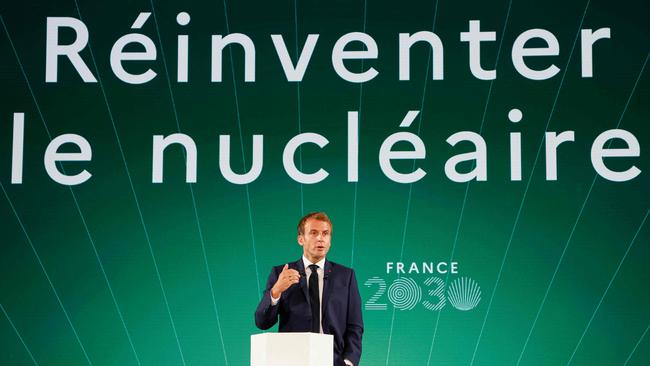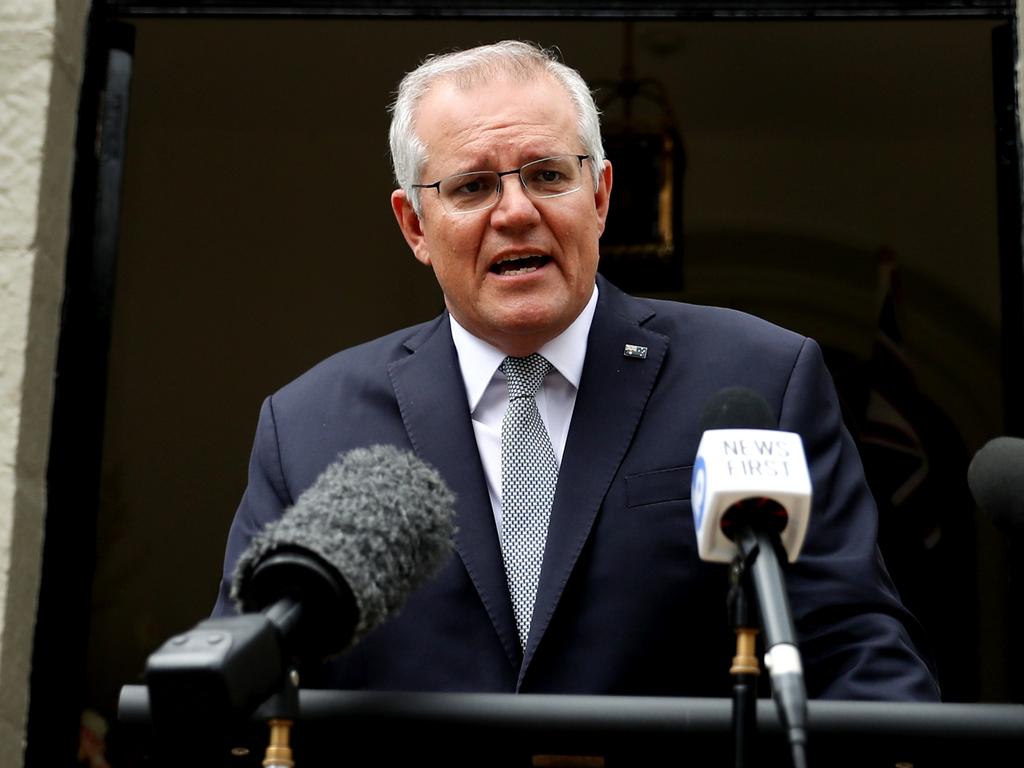Climate summit: Net zero and the transition of power
It is worth looking at the geopolitical implications of the net-zero agenda through a different lens: how events are playing into China’s hands.

Confirmation on Friday that Chinese President Xi Jinping will not attend the UN Climate Change Conference, known as COP26, underlines a bigger point. India, too, is not interested in the push to curtail the use of fossil fuels.
A reading of international headlines this week paints the picture of a world finally catching up to the scale of the task. “China rethinks path to climate goals due to energy crisis”, pro-climate action Bloomberg News said on Tuesday, and “UK turns to coal as low wind output increases power prices”. Newsweek screamed: “Gripped by energy crisis, Europe considers breaking climate promises and turning to coal.” And Britain’s The Telegraph thundered: “Net zero heralds the demise of British manufacturing as glassmakers threaten to move overseas.”
As Scott Morrison and Coalition partners the Nationals agonise over the politics of tougher action on climate change, in the real world the two biggest carbon dioxide emissions nations, China and the US, are facing a new coal reality. US power plants are on track to burn 23 per cent more coal this year, the first increase since 2013, despite President Joe Biden’s ambitious plan to eliminate carbon emissions from the power grid.
Chinese Premier Li Keqiang has recommitted his nation to coal, gas and oil. In a statement that highlighted the need to continue building up the nation’s capacity in fossil fuels, Li said China needed to prioritise its economic development, which “holds the key to solving all its problems”.
“Energy security should be the premise on which a modern energy system is built, and the capacity for energy self-supply should be enhanced,” Li said. “Given the predominant place of coal in the country’s energy and resource endowment, it is important to optimise the layout for the coal production capacity, build advanced coal-fired power plants as appropriate in line with development needs, and continue to phase out outdated coal plants in an orderly fashion. Domestic oil and gas exploration will be intensified.”
That means China’s twin goals of peak emissions by 2030 and carbon neutrality by 2060 should be achieved in a “sound and well-paced” manner that will require “long and hard” effort.
In Europe, dumbstruck by a lack of wind and high prices for gas because of post-pandemic demand in Asia and a geopolitical squeeze by Russia, policymakers are looking for answers. With Angela Merkel gone in Germany, French President Emmanuel Macron is pushing hard for a renaissance in nuclear power across the EU. In the meantime, the use of fossil fuels is back on the rise.
The dilemma is doubly embarrassing because it is all happening in the weeks leading into the Glasgow climate summit, which is supposed to be the gathering at which fossil fuels are consigned to history.

Unexpectedly, energy has trumped environmental science and bad weather in popular discussion, when tectonic forces are reshaping the world’s power structures on multiple fronts.
The Morrison government has judged that financial pressure and potential opportunity leave little option but for Australia to get on board with a push for a net-zero target by 2050. This is difficult politics. A lot depends on whether, as Atlassian boss Mike Cannon-Brookes suggests, we are seeing the last gasps of a dying fossil-fuel industry. Or are events simply acknowledgment that energy transitions are more difficult than supporters would have you believe? The bottom line is a mega-trend towards decarbonisation is well entrenched, but the pathway to get there is far from clear.
The transition is loaded with contradictions. Industry and government want clean energy, but they need reliability of supply more. Consumers want a clean, green world for the future, but they still are not prepared to pay much, if anything, to achieve it.
A YouGov poll this week showed most Australians wanted the government to act on climate change but 43 per cent of respondents said they were not prepared to pay extra on their power bill. A further 28 per cent were unwilling to pay more than $25 a month. Fourteen per cent were prepared to pay up to $50 a month and only 15 per cent were prepared to pay more than that. Overwhelmingly, respondents wanted Australia to stick with coal exports and gas.
The findings are consistent with international polls. Two-thirds of those surveyed in the US were opposed to an additional payment of $120 a year on their electricity bill. But the International Energy Agency’s Net Zero Emissions by 2050 assumes a carbon price of $US75 a tonne of CO2 in 2025, which implies a cost for consumers of more than $1000 a year.
In Britain, green levies already account for about a quarter of energy bills. The push now is to put additional burden on to gas, used to heat houses, or straight to consolidated revenue.
There is plenty of evidence that consumers have a breaking point; the French yellow shirts rebellion is one example.
The Economist magazine warned last month that high-cost policies could lead to a Brexit-style popular revolt. “Brexit transformed Britain by tapping into ordinary people’s resentment of distant elites, and anti-greenery could do the same,” it said. “Environmentalism is driven by populists’ two big bogeymen, scientific experts and multilateral institutions. In the public mind, greenery is coming to mean global confabs that produce yet more directives, and protesters who block city centres and motorways.”
But big business and financial markets have seized on a transition they believe is paved with gold, good intentions and power. Nay-sayers are simply in the way. Investment funds are calling the shots, warning there will be no money for countries that do not co-operate, and business is betting big on technologies of the future, such as hydrogen and electric vehicles, and asking government to help.
Success in reducing global greenhouse gas emissions will involve moving well beyond constraints on energy. International forces are marshalling to extend the decarbonisation agenda into a much bigger goal of biodiversity protection and restoration. Where companies are now required to account for greenhouse gas emissions in the boardroom and on the balance sheet, in future they may have to account for impact and protections of natural systems as well. Serious work is being done on how to value the various attributes and services of nature so they can be accounted and traded.
Environment Minister Sussan Ley this week committed Australia to the Kunming Declaration pledging to end the extinction of known threatened species, protect at least 30 per cent of the land, including key biodiversity areas, revegetate the damaged bits and embed nature in decision-making using accurate and transparent national environmental data.
Green groups say $2bn a year will be needed for land repair but analysis suggests this could store an estimated 913 million tonnes of greenhouse gases across 55 years. After a decade of vegetation growth, 13 million tonnes would be stored annually – equal to 16 per cent of the emissions reduction required under Australia’s Paris Agreement obligations. If the carbon stored by the project were translated into carbon credits, the potential revenue could be between $12bn and $46bn.
The objective of the UN is eventually to fold the biodiversity COP process, held this week in China, into the existing climate-change framework. This holds great promise for those who believe nature-based solutions can help address climate change.
John Connor from the Carbon Market Institute says the value of tradeable Australian carbon units has been rising faster than house prices in recent months. The carbon units are backed by land-repair initiatives and carbon farming. Higher prices will encourage greater supply, including from direct capture of CO2 from the air to be used in industrial products or buried underground.
Demand for carbon units is being driven by pressure on businesses from consumers to deal with their CO2 emissions. Big financial players, including hedge funds, oil and gas companies and airlines, have moved into the space in the expectation it could be a $US1 trillion industry globally by 2050. Connor says it would be worth $US800bn in capital value, bigger than oil and gas is now.
“Australia should be a player in that but we need to make sure we don’t shoot ourselves in the foot before then,” Connor says. He estimates that up to $24bn in revenue will go into regional Australia from carbon projects in the next decade.
“It’s a bit like any new industry, a bit like the wind turbines and fracking gas as well, there is a bit of fear of the new and a bit of a backlash that happens,” Connor says. “It is still a job for this industry to sell itself as a reasonable partner in the communities in which they participate.”
For Connor, Australia is at an inflection point similar to the floating of the Australian dollar on global markets, which happened under the Hawke government in 1983. “We need a carbon pricing mechanism that guides investment,” he says. “Like the floating of the dollar it frees up the market; we are at that sort of inflection.”
Like many, Connor argues the federal government should encourage businesses to act. “Let business be the driver again with a market-based solution,” he says.
It is an idea not supported by Energy Minister Angus Taylor, who maintains he is consumer-focused and wary of “crony capitalism”. Any suggestion of a carbon price is a bridge too far.
In Australia the debate is cast in terms of geopolitics on two fronts: first, the potential for exclusion from global financial markets unless action is taken on net zero; and second, on the need to co-operate with our AUKUS partners in the interests of regional security.
But it is possible to see the geopolitical implications of the net-zero agenda through a different lens, one in which the developed world is being outplayed by the Chinese Communist Party. Within the UN’s climate process the divide has always been most pronounced between developed and developing countries.
In a paper published this week Jun Arima of the University of Tokyo sounded the alarm over how events are playing into China’s hands. Arima is one of Japan’s most experienced climate-policy diplomats, having represented Japan at 15 previous UN climate conferences including several as a senior negotiator and a lead author of the IPCC Sixth Assessment Report.
Arima argues the net-zero agenda being urged on the world fatally damages the pragmatic and fragile consensus achieved in 2015 with the Paris Agreement, setting the West against the developing world, to the benefit of the CCP.
“The net-zero climate policies are creating a divided and acrimonious international environment that will permit China to greatly enhance its global economic presence and political influence, while the developed, democratic world becomes weaker in every way,” Arima writes.
He says dramatic emissions-reductions pledges in the West are irrelevant without corresponding reductions in the developing world, but China, India and Russia, which account for nearly 40 per cent of world emissions, have not made relevant commitments.
In this context, the 45 per cent reduction in global emissions by 2030 required to limit temperature increases to 1.5C has a near-zero probability of being achieved. By setting a carbon-neutrality target for 2060, 10 years later than that of the other developed countries, China has secured room for manoeuvre, and as soon as the failure of net-zero policies becomes evident China will criticise the West and procrastinate over its own decarbonisation target.
Meanwhile, Arima says, Chinese companies are the principal beneficiaries of the green agenda, holding 70 per cent of the global solar market and representing seven out of the 10 largest wind turbine manufacturers.
He says the trend towards electric vehicles is particularly advantageous for China, sweeping away decades of accumulated technological advantage in internal-combustion engines of its international competitors and providing a shortcut to automobile power status.
While dependence on Middle Eastern oil has long been the achilles heel of global energy security, a shift towards renewables, battery storage and EVs could cause a different risk, namely growing dependence on China for fundamental strategic minerals and the high-value components manufactured from them. Arima says low-carbon policies in the West will reduce the cost of fossil fuels to China while increasing energy costs in the West, delivering competitive advantage to China.
China’s plans for a regional, then a world, electrical power grid raises security concerns on cyber attacks and politically or militarily motivated disconnections. China is promoting the concept of “global energy interconnection”, claiming this could reduce costs through electricity trading, as well as promoting the spread of renewable energy and supporting decarbonisation.
With the State Grid Corporation of China at its core, this concept aims at the completion of an international power grid in each continent, including Asia, by 2030, the construction of an intercontinental grid by 2040 and connection of the entire world through a high-voltage power grid by 2050.
Arima says the divided and acrimonious world being created by net-zero policies will permit China to enhance its global economic presence and influence further, while the developed, democratic world becomes economically, politically and militarily weaker.
Arima’s bleak assessment provides a reality check for policymakers. But it also highlights the opportunity for Australia to help other countries avoid becoming hostage to dominance by China.
While the government considers a net-zero pledge to be politically and diplomatically expedient, the bigger imperative must be to ensure adequate supply lines of strategic materials for the green transition in like-minded nations. This is the substance of discussions being held by Quadrilateral Security Dialogue leaders, including Australia, Japan, the US and India.
The technology-first approach adopted by government is a recognition of the task ahead. Developing new and alternative energy supplies must be a priority. As a big country with a small population, Australia has another natural advantage in land-based solutions.
The World Economic Forum said on Thursday that breakthrough technologies such as hydrogen-based fuels, bioenergy and carbon-capture storage solutions are needed to hit the global goal of zero emissions by 2050. To scale these technologies and take them to market will require at least a tenfold increase in investment.
Australia’s challenge is to stay involved as part of the energy revolution without surrendering its communities, strengths or interests along the way.







At the very moment that Australia’s political class is gripped by a dramatic shift in climate-change ambition ahead of the Glasgow summit, the world has been seized by a countervailing reality. Global energy markets are in chaos and the divisions between the developed and developing world have never been more stark.